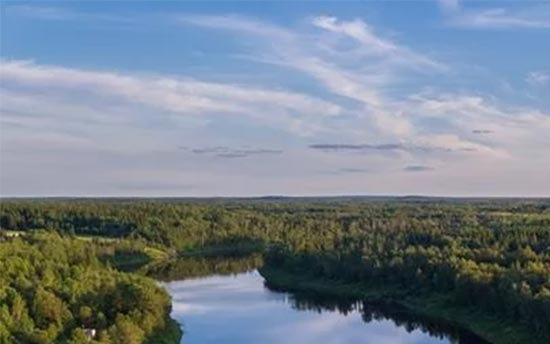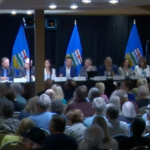A township in Northern Ontario has taken the dramatic step of declaring municipal bankruptcy, making it the first Ontario municipality to face insolvency in recent memory. Greenwater Township, located 380 kilometers north of Thunder Bay, filed formal bankruptcy proceedings last week after years of declining revenue and mounting infrastructure debt.
“We’ve exhausted every possible avenue,” explained Mayor Theresa Kowalski during an emergency town hall meeting that drew nearly all of the township’s 1,800 residents. “The combination of our aging infrastructure, declining tax base, and the mill closure last year has created a perfect storm we simply cannot weather without this difficult step.”
The township faces approximately $12.3 million in debt against annual tax revenues that have fallen to just under $2.2 million. Provincial officials from the Ministry of Municipal Affairs have dispatched a team to assess the situation and determine what level of intervention might be required.
Municipal bankruptcy remains exceedingly rare in Canada, with most struggling communities receiving provincial oversight or emergency funding before reaching insolvency. According to the Federation of Canadian Municipalities, only three Canadian municipalities have declared bankruptcy in the past 30 years.
“This isn’t just about poor management – it’s a story playing out in small resource-dependent communities across the country,” said Dr. Emma Reynolds, municipal finance expert at Lakehead University. “When a major employer leaves and your infrastructure is crumbling, the math simply doesn’t work anymore.”
The township’s financial troubles intensified after Northern Pulp Industries shuttered its operations in 2023, eliminating 170 jobs and approximately 40% of the community’s commercial tax base. Meanwhile, essential infrastructure continued to deteriorate, including a water treatment facility that failed environmental compliance tests three times in the past year.
Residents expressed both anger and resignation at the bankruptcy announcement. “My family has been here for four generations, but what happens to our community now?” asked lifelong resident Martin Bouchard, 67. “Will our water still run? Will our roads get plowed this winter?”
The Ontario Municipal Board will appoint a receiver to manage Greenwater’s finances and essential services while developing a recovery plan. Municipal services will continue during this process, though capital projects have been suspended indefinitely.
The Greenwater situation has raised alarms in other small Ontario communities facing similar pressures. The Association of Municipalities of Ontario estimates that at least 12 townships across Northern Ontario currently operate with debt-to-revenue ratios that financial experts consider unsustainable.
“We’ve been warning about this for years,” said AMO President Janice Lowry. “The infrastructure deficit across rural Ontario exceeds $10 billion, and property taxes alone simply cannot generate enough revenue to address these needs in communities with declining populations.”
Provincial officials have emphasized that municipal bankruptcy does not mean the community will cease to exist. Minister of Municipal Affairs Caroline Phillips issued a statement pledging provincial support: “The Ontario government recognizes the unique challenges facing Greenwater Township. We remain committed to ensuring residents continue to receive essential services while working toward a sustainable path forward.”
Financial restructuring could take several forms, including debt reorganization, service consolidation with neighboring municipalities, or in extreme cases, dissolution of the township and absorption into the surrounding district.
For Greenwater residents, the most immediate concern is maintaining basic services while confronting an uncertain future. Township CAO Robert Winters confirmed that waste collection, emergency services, and water treatment will continue without interruption, though some municipal staff reductions are expected in coming weeks.
“I’ve lived through the mine closure in ’89 and the sawmill shutdown in ’02,” reflected former town councillor Janet MacDougall. “But this feels different – like we’re fighting for our community’s very existence.”
As provincial officials begin their assessment, Greenwater’s situation highlights the precarious position of many resource-dependent communities across Canada’s north – places where the traditional funding model for municipal services increasingly fails to match economic realities.
The bankruptcy declaration has prompted calls from municipal advocates for a broader discussion about sustainable funding for rural infrastructure and essential services. Meanwhile, Greenwater residents wait to learn what their community might look like after financial restructuring – and whether their township will survive in recognizable form.






